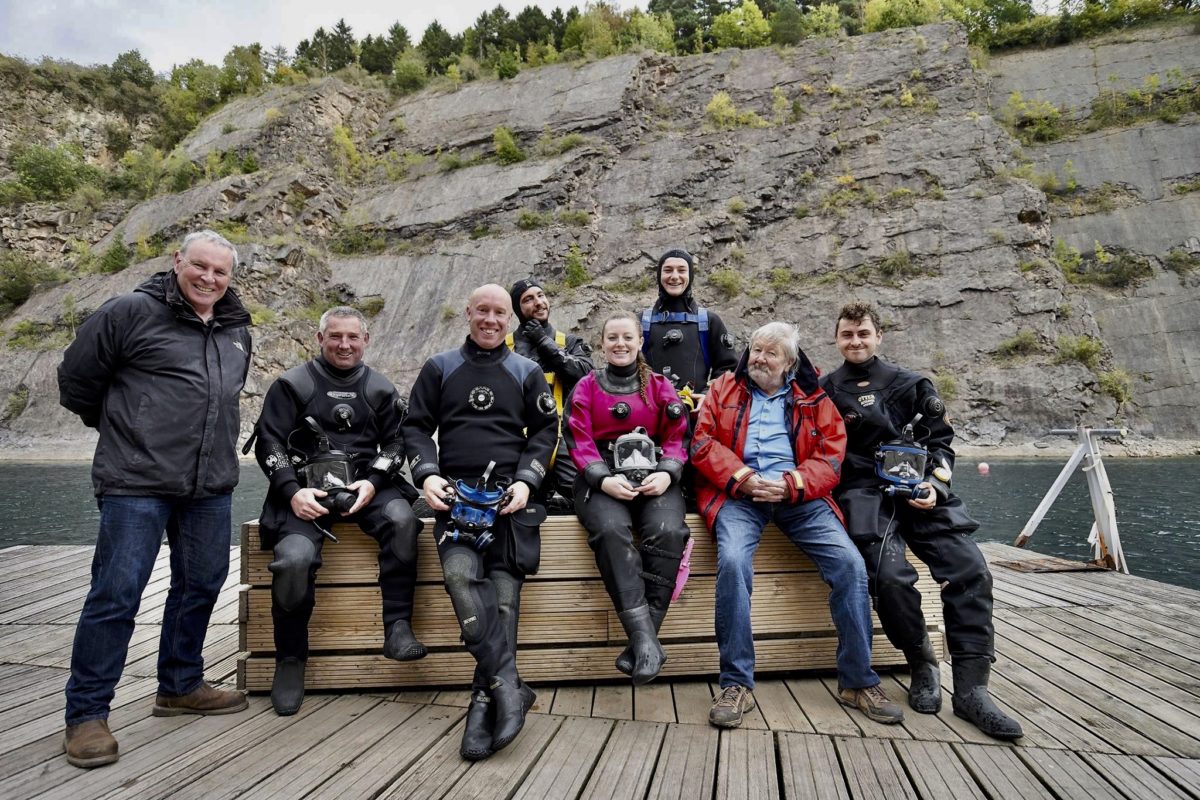HSE Commercial Part IV diving training
After my visit to the beautiful waters of south-east Asia, I started my long journey back to the UK where I was going to take my first professional step into diving to be able to use it as tool in the working environment.
Since I started the scholarship, I have quickly realized that diving for me is not just an activity that I want to do for fun (which is also the case), but that I want to use as the tool that will allow me to study, explore and discover new environments in harsh and remote locations. One of my objectives for the year was to learn more about the polar environments underwater (both Arctic and Antarctic) and for that reason I thought it would be a good idea to get more experienced in my diving skills and to become a scientific diver. in cold water conditions Because let’s be honest, diving in the Red Sea with 30ºC in the water using an underwater camera is not quite the same as doing it in 0ºC water in Antarctica carrying scientific equipment. Also, conducting scientific diving is regarded in many countries as a work activity, having different regulations than recreative diving and, as such, it needs a certificate that qualifies you to work underwater.
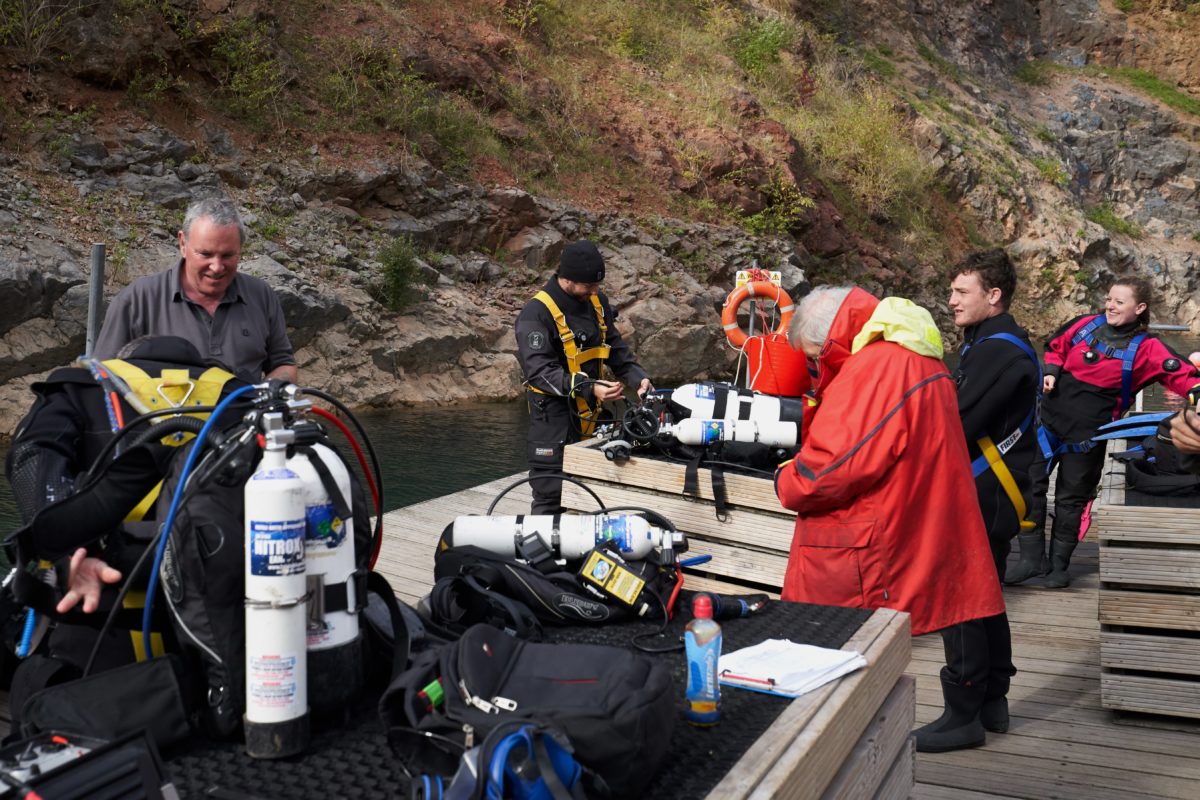
For these reasons, I traveled to the capital of Wales, Cardiff, to take the HSE Commercial Part IV diving course at the Bristol Channel Diving Services facilities. There, the incredible team including the main instructor Neil Brock, Adrian, Max and Imogen welcomed me and the other four students that were going to take the course: Roisin, Darren, Aron and Kieran.
Two of the main focus of the course was the use of diving as a tool for work in the scientific and in the media (filming, photography, etc.) environment.
During the introductory lesson, Neil tried to familiarize us with all the terminology and all the legal aspects of the HSE (Health and Safety Executive). Under the HSE system, divers at work must follow what are so called ACOPs (Approved Code of Practice). ACOPs provide practical advice and guidance when conducting working activities underwater in order to comply with the law. One thing that I learned during the course is that diving at work is a serious thing, and if something was to happen while conducting an underwater project and you are found out to not be following the minimum advice and complying with the regulations you can get into serious trouble. So, it was extremely useful information to know (and a tough process at the same time, since law terminology and me are not very good friends)!
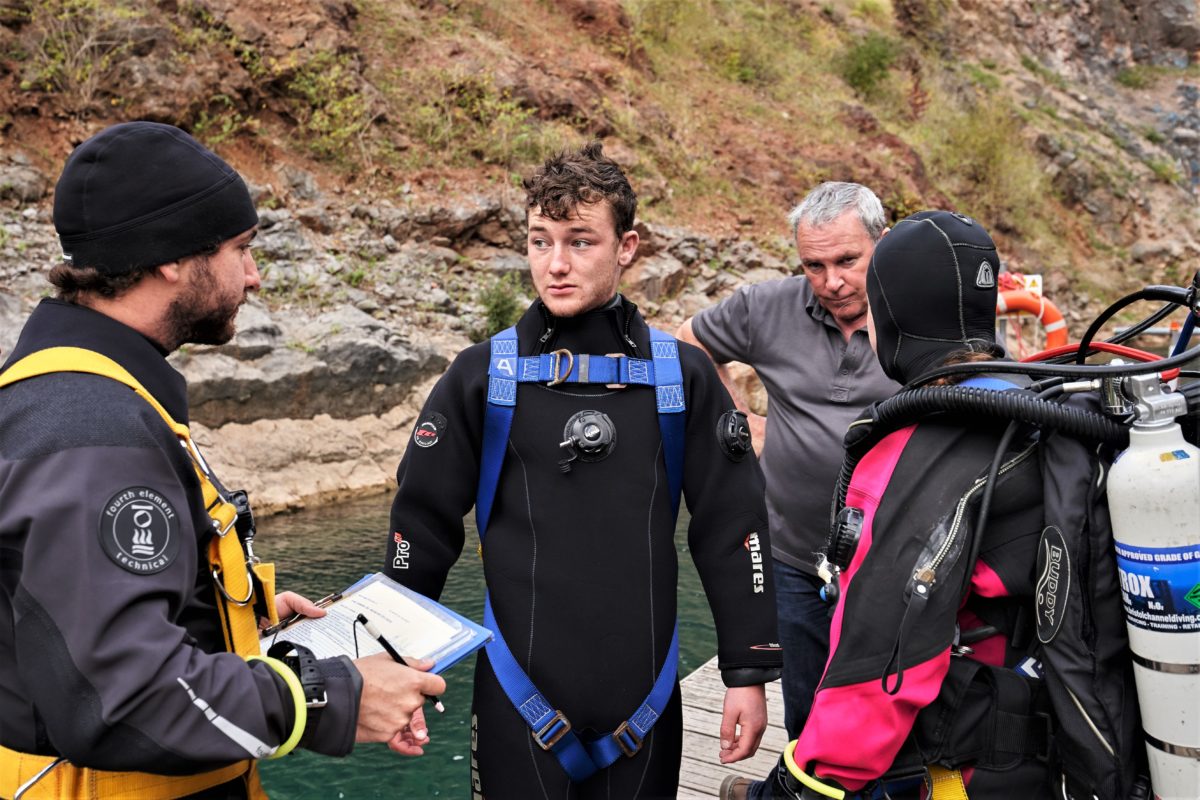
After the bureaucratic and theoretical session, we then took action and started the more practical stuff. We went to a quarry where we were going to do our first dive. First, Neil explained us all the different components of the equipment that we were going to use during the course.
One of the big exciting novelties for me was the use of a full-face mask. For most of us it was the first time using them, and they looked a bit intimidating at first. However, once we got used to breathing with them and fitted them correctly, they were extremely comfortable (and actually we looked pretty cool with them!).
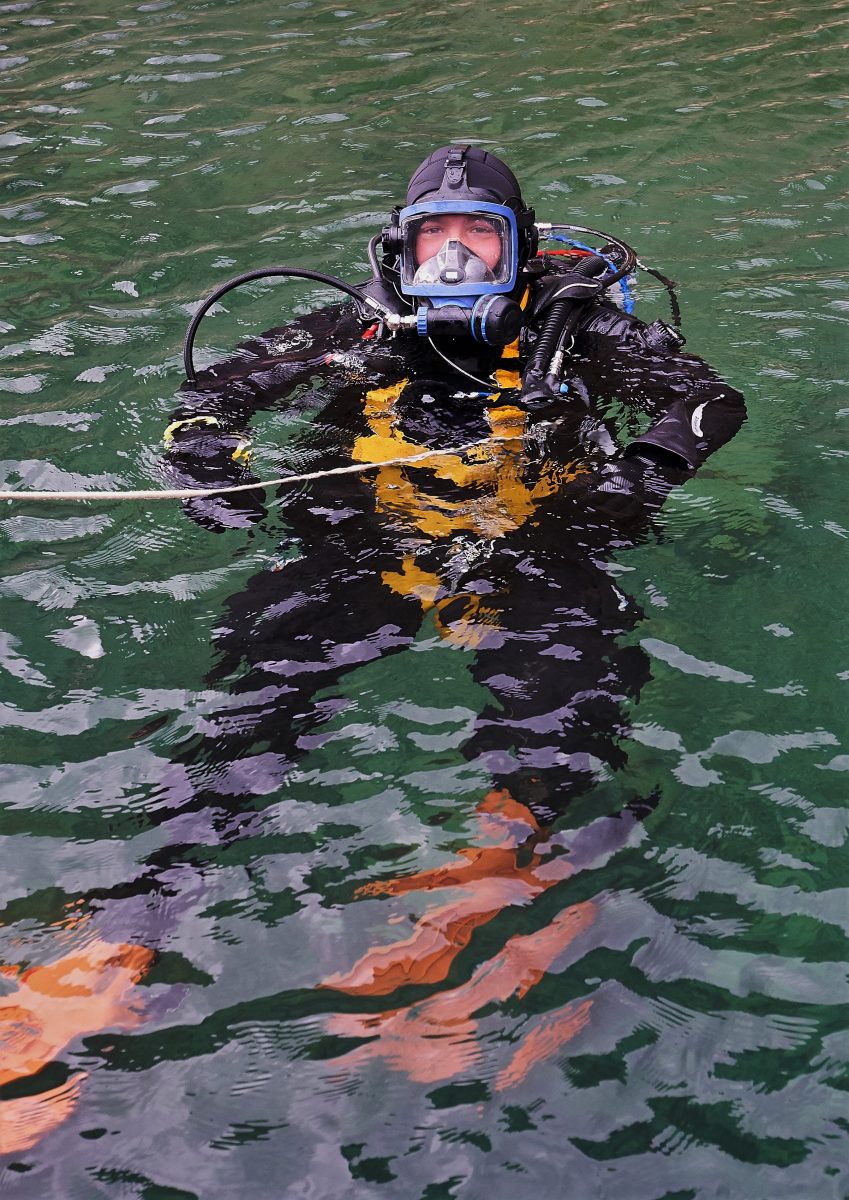
Another new thing was the roles of the working team. Generally, a diving team under the HSE system for scientific or media purposes is constituted by the following members (although this can vary according to the diving conditions and SCUBA vs. Surface Supply): a supervisor, a tender, a standby diver and the diver (or divers).
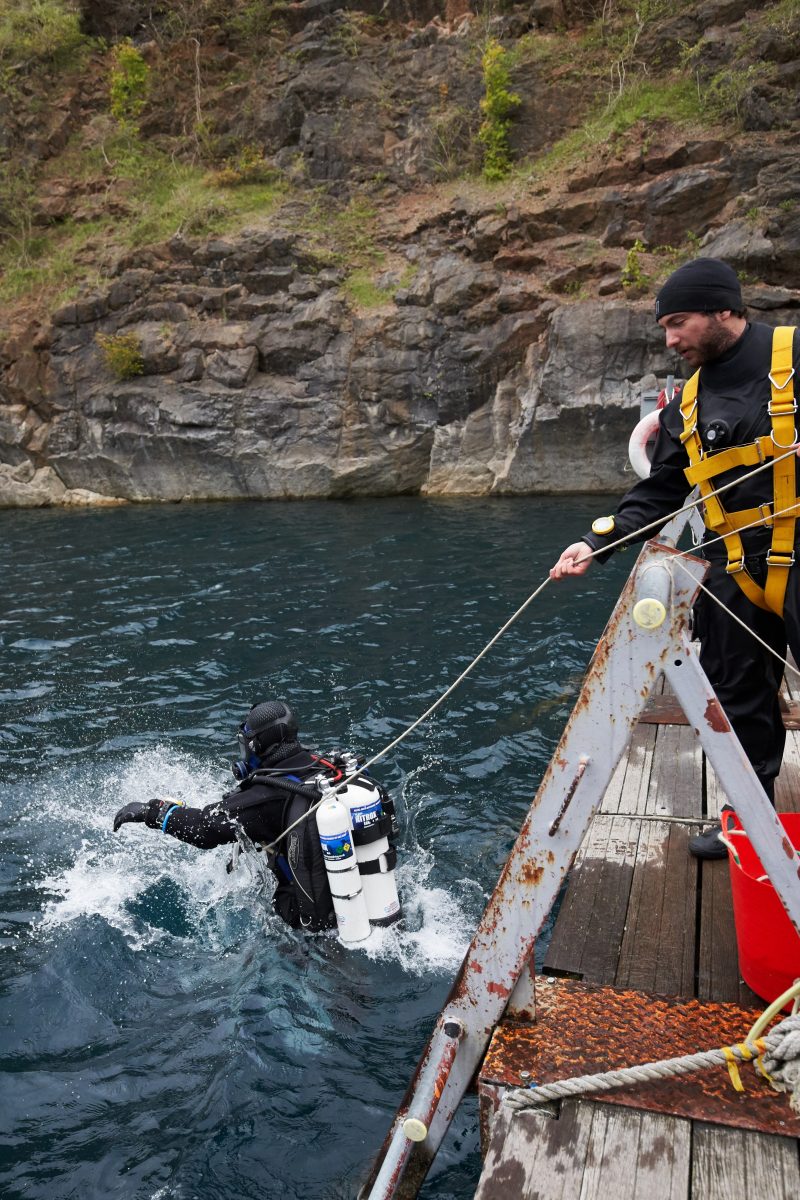
We had the pleasure to have Richard Bull as supervisor during the training. Richard worked as scuba diving adviser with the film teams of Blue Planet and Blue Planet 2 and it was a pleasure to hear all the stories he told us about his experiences around the world, diving and also his life as a rock band bass player in his early days! We also had Toni as our standby diver, who was always dressed up and ready to jump at any moment in case needed underwater.
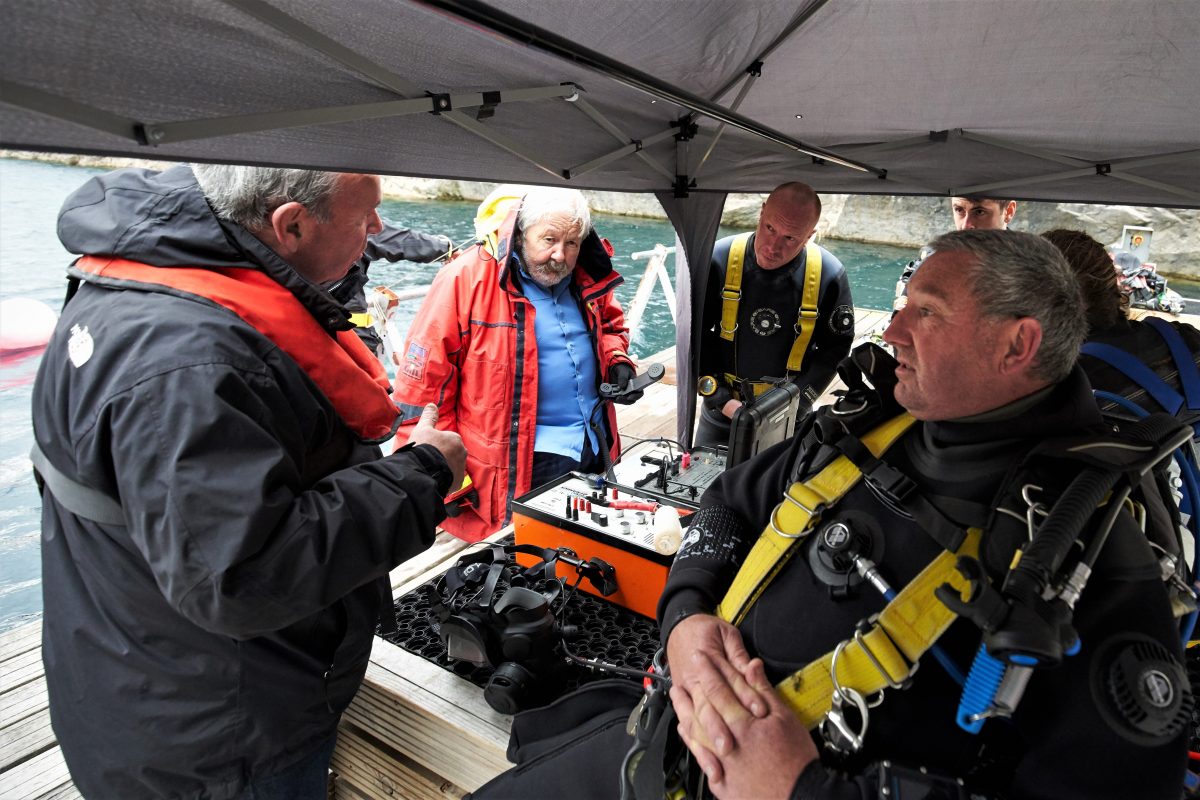
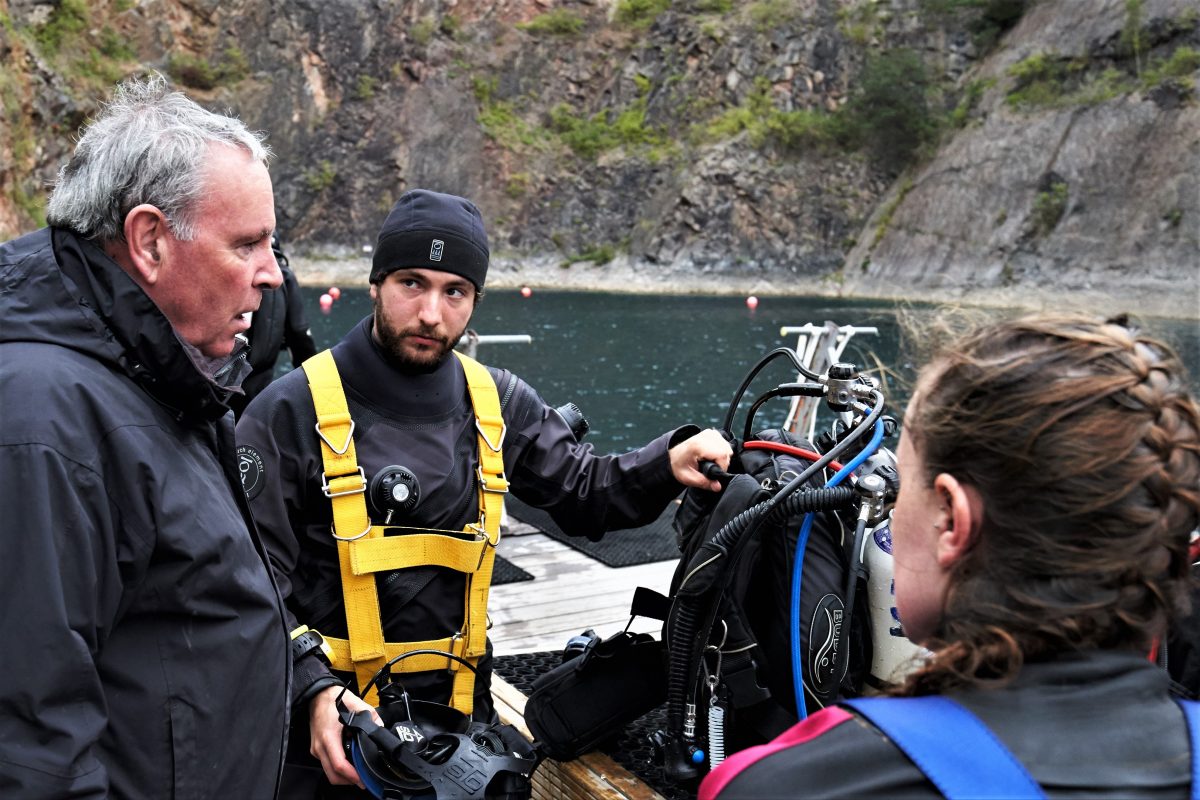
With the full-face mask, usually a communication system is integrated (which can be through a tethered system or through a wireless system with a transmitter and receiver) and this allows the divers underwater to have direct communication with the supervisor on land. This might sound like a fancy and fun asset, and one might be tempted to start talking through the “coms” like if you were talking to a friend in a coffee chat! However, using the “coms” in an efficient way, short and clear is a fundamental skill that we were practicing during the whole course and I can assure you that talking to your supervisor while doing more than one thing underwater requires quite a lot of multitasking skills and concentration!
Once we got comfortable with the whole new system and practiced the “coms” a little bit we started to carry out the different tasks that we had to fulfill for the course. During the dives, we had to build scaffolds, practice to tight knots underwater in complete darkness, conduct surveys of underwater wrecks and try to identify which kind of boat they were in very poor visibility and many more skills that Neil showed us in the dive center.
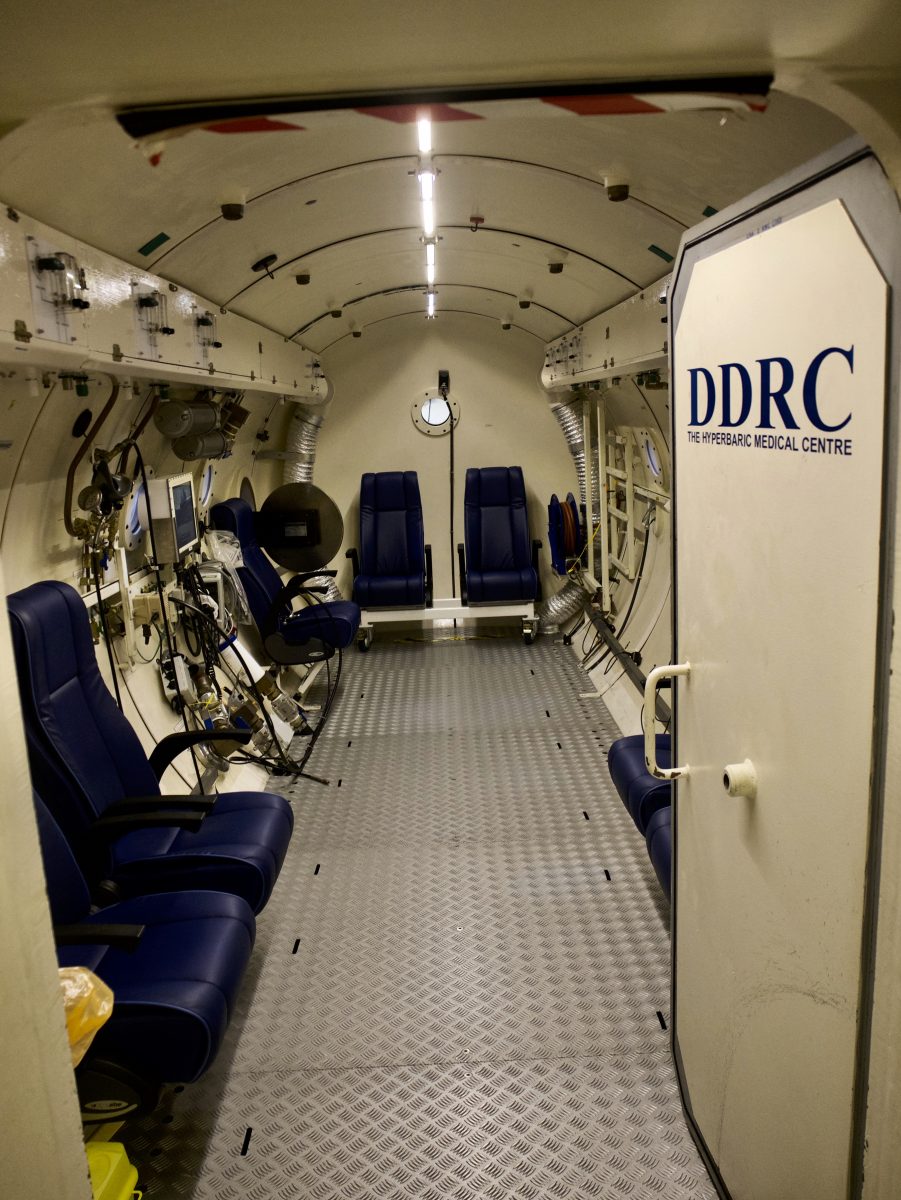
Without doubt, one of the most memorable experiences during the course was the dive chamber dive that we did at the Hyperbaric Chamber of the DDRC in Plymouth to pass the course. The chamber tender took us down to 40m and we had the chance to experience first-hand the physics of pressure! First it got extremely hot inside, as the air got compressed and the particles increased their kinetic energy. Then, as the air got denser, we started talking like the Smurfs (that was hilarious), and to make things even better I got narked, which guaranteed a good long time of non-stop laughing!
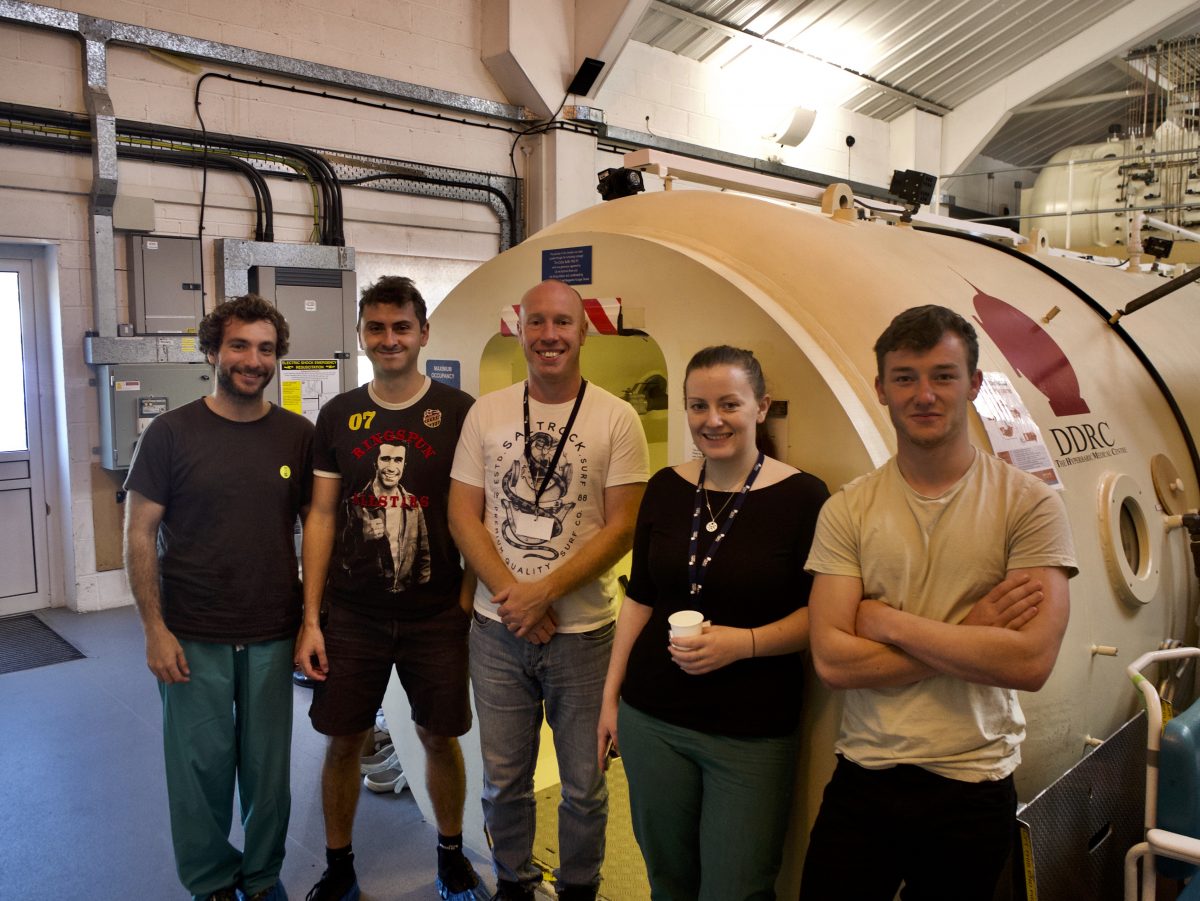
Group picture after the dive at 40m inside the hyperbaric chamber. Photo: DDRC
After the two intense weeks of hard work and new knowledge I feel this course has been extremely useful for me and that it will open lots of doors in underwater research in my professional future.
I can’t be thankful enough to all the team at Bristol Diving Channel Services for offering the opportunity to join in this course and I want to say a big thank you as well to my course mates Darren, Aron, Kieran and Roisin for having gone through this experience together!
